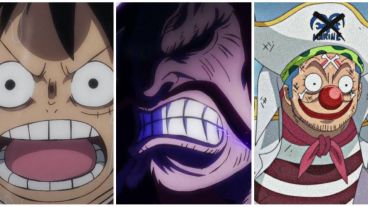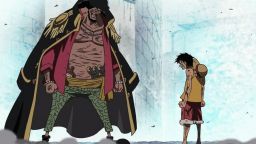The Millionaire Detective, a glamorous and opulent animated series by Cloverworks based on a series of novels, reimagines the detective character by giving him a "unlimited balance" that can be used to solve crimes. The heart of the anime, however, lies in the alliance that the millionaire in question, Daisuke Kambe, forges with an older police officer who has a propensity for snap judgments. While this peculiar premise can draw audiences hungry for original content.
Detective Haru Kato, 30, of the Tokyo Metropolitan Police, has trouble adjusting to this new alliance. More than Kambe, his persona is created to reflect the detective archetypes that viewers have come to know and love: a strong sense of justice, an unconventional way of life, a difficult personality, and a contentious past. These traits and flaws help and hinder Kato alternately, just like they do with other anime detectives like Moriarty, L, and even Sherlock himself, adding to the complexity that makes detective characters so intriguing and well-liked in the first place.
Kato is Highly Competent but Severely Flawed, much Like Sherlock

When viewers encounter Kato for the first time, he's trying to stop Kambe from destroying the city in order to prevent a bomb from going off. While the first episodes of the anime serve the purpose of presenting Kambe’s eccentric personality and crime-solving methods, by Episode 3, Kato is as much a protagonist as his millionaire counterpart. It’s in the midst of a hostage situation that Kato really shows his worth as a detective, as his experience and intuition allow him to solve the crime without anyone getting injured in the process. More than superhuman intelligence -- the weapon of choice of Sherlock as well as his successor Ranpo from Bungo Stray Dogs -- Kato showcases a competence that stems from an intuitive nature and years in the force.
Kato, like Sherlock, is hampered in his work by a difficult personality. While he is not inherently antisocial, the rigidity of some of his convictions, as well as his proclivity to obsess, make him an unsuitable partner. His collaboration with Kambe gets off to a rocky start because Kato cannot let go of Kambe's willingness to shower people with money in order to solve a case. Justice, in his opinion, cannot be obtained through 'tricks,' but must be earned the right way. His judgmental nature -- mainly toward Kambe -- and the obsessiveness of his fixations with proper police work and the correct way to do things are all traits that make him both unlikable and impossible to work with.
The Fallibility of Kato Challenges His Rigid Sense of Justice

Justice is important to Kato, and it must be secured by doing honest police work. His perception of who and what a detective is comes across as naive and delusory, but it stems from a strong belief that being a cop means being a hero. Kato's dedication to the job is more than just a matter of work ethic; being a detective is his entire life. Fighting crime and assisting others is heroic, almost holy in some ways. Kato is unwilling to compromise because of the perceived sanctity of his profession.
It's exactly because of this rigidity that Kato was demoted. Rather than for his mistake -- misfiring during a hostage situation -- Kato was punished because he couldn’t forgive himself. Incapable of letting go of his error, he was unable to fire a gun again and therefore unfit to stay in the First Division. While a tragic and controversial history is a staple of detective characters -- in anime and otherwise -- the interesting thing about Kato is that it’s his own moral compass that prevents him from moving on. Unlike Terror in Resonance’s Shibazaki, another incredibly nuanced detective character, Kato’s demotion is almost self-inflicted.
Kato's Growth Is Catalyzed By His Partnership With Kambe

Sherlock wouldn’t be Sherlock without a Watson to bear witness to his accomplishments. In a more recent adaptation, Sherlock wouldn’t be as morally conflicted without a Moriarty to challenge his perception of the world around him -- in Moriarty the Patriot, it’s his rivalry with his infamous enemy that transforms him completely. Likewise, Kato would still be stuck in his moral impasse if Kambe hadn’t barged into his life. As the story goes on and the two partners learn to work together and respect each other, it’s Kambe’s unwavering trust that allows Kato to regain his self-confidence. It takes Kambe betting his life on Kato’s capacity to act for Kato to finally find himself again. More than by firing a gun, Kato conquers his demons by trusting his own judgment again.
The only thing that Kato is missing and that usually makes detectives much more intriguing is a complex morality. Nevertheless, that’s what Kambe is there to provide. By challenging Kato’s fixed opinions about police work, Kambe proves that resorting to underhanded methods isn’t necessarily terrible if it gets the job done. Kambe is Kato’s darkness, almost a projection of the repressed part of him that is asking to let go. When Kato eventually accepts Kambe’s unconventional methods, he also accepts that life is far more complex than he was willing to admit. The same happens to Sherlock and Moriarty, with Sherlock stooping so low as to murder someone at the very end of the series in a gesture that concedes Moriarty’s point about the world’s corrupt nature.
These collaborations are an additional factor in the success of detective fiction. Risking one's life alongside another creates an unbreakable bond with an incredibly deep profundity. Once Kato has saved Kambe's life, their tense, solely professional relationship is irreversible. In fact, in the series' concluding episode, Kambe and Kato are seen working abroad on a high-profile case while appearing to be having fun and getting along well. The intensity of the relationships that so many of these series are based on can be linked to many of the "ships" that fans of these shows adore.
From Conan Doyle's Sherlock all the way up to contemporary reimaginings and reinventions like Enola Holmes, there are many elements that make detectives so potent and successful. These include a flawed protagonist with a tragic backstory, a strong sense of justice and the willingness to fight for it, and partnerships that can change one's life. As The Millionaire Detective emphasizes, Kato is evidence that anime isn't an exception.






